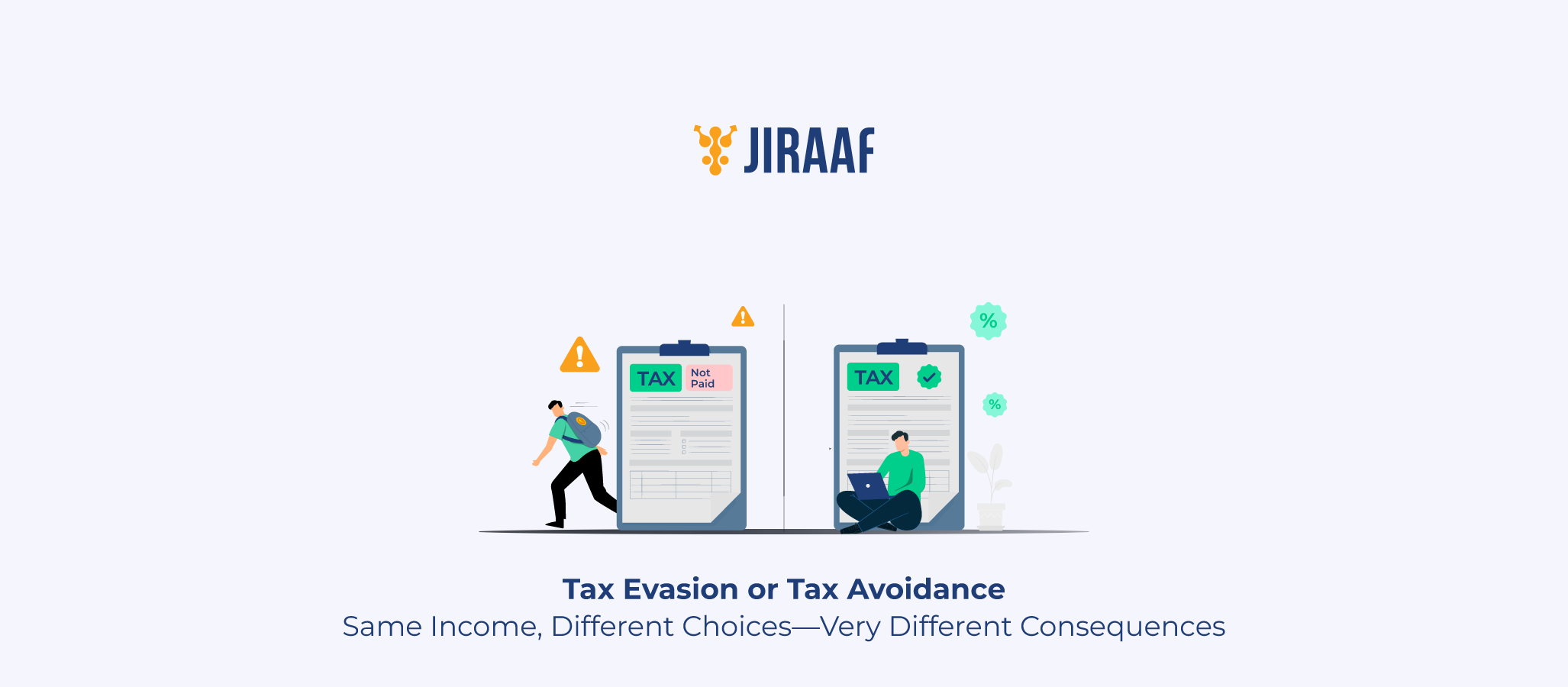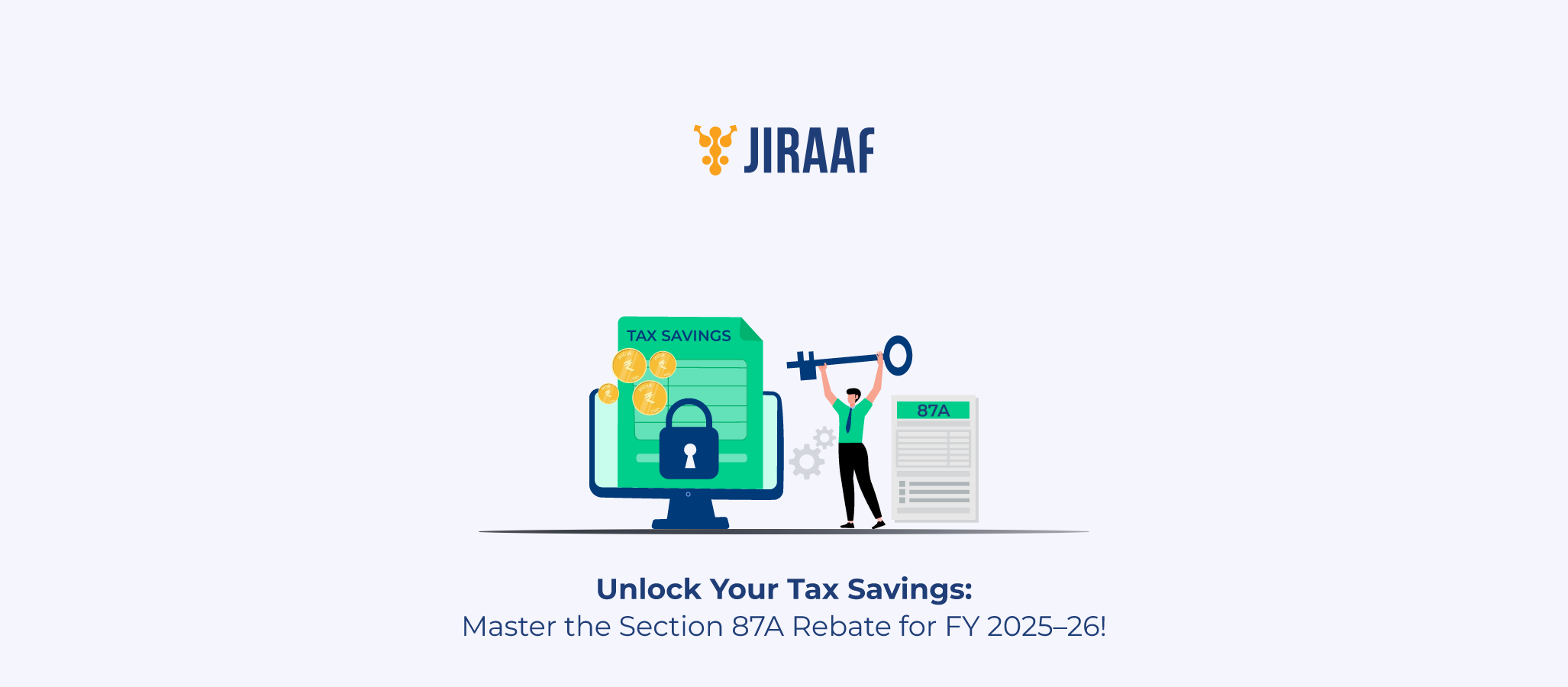Meet Asha and Kunal. Let’s say both are seasoned professionals with growing portfolios and ~₹40 lakh in annual income. Asha opts for tax-saving instruments under Section 80C, declares her rental income, and times her equity redemptions to optimize her long-term capital gains. Kunal, on the other hand, underreports his freelance earnings, routes money through undisclosed family accounts, and hides capital gains.
On the surface, they both reduce their tax liabilities. But while Asha stays within the lines of the law, Kunal crosses them and risks heavy penalties, prosecution, and reputational damage.
In India, where the net direct tax collections for FY 2023-24 stood at over ₹19.5 lakh crore, the difference between tax evasion and tax avoidance is not just semantic; it’s a cornerstone of responsible financial conduct. Many high-income earners, especially those managing diversified portfolios, are increasingly facing complex choices that can either reflect sharp tax strategy or slip into grey zones.
In this blog, we decode tax avoidance and evasion and explain how you, as an informed investor, can reduce your tax liability while staying compliant, ethical, and audit-ready.
What Is Tax Avoidance?
Tax avoidance means reducing your tax liability by using provisions legally available under the law. It’s about smart planning through claiming deductions, restructuring income streams, and selecting tax-efficient investment vehicles for both individuals and businesses.
For instance, claiming deductions under Section 80C, using HUF structures, investing in tax-free bonds, or choosing the presumptive taxation scheme under Section 44ADA are all examples of tax avoidance strategies. These are well within the boundaries of legality and, in many cases, encouraged by the government to incentivize certain financial behavior.
Simply put, tax avoidance is a legitimate way to optimize your taxes without concealing information or providing false disclosures. That is why the government has laid out certain provisions in the Income Tax Act of India, 1961. As long as your intent and execution are aligned with the letter and spirit of the law, tax avoidance is not only permissible; it’s a hallmark of savvy financial management.
What Is Tax Evasion?
If tax avoidance is playing smart within the rules, tax evasion is breaking them outright.
It refers to any and all deliberate acts of concealing income, inflating expenses, or misrepresenting financial information to reduce a person’s tax liability illegally. Underreporting business income, not issuing invoices, hiding foreign assets, or using shell entities to mask profits all fall under tax evasion.
To be clear, tax evasion isn’t just poor recordkeeping or a technical error; it’s an intentional attempt to defraud the exchequer and not pay taxes you owe. Where avoidance uses legal provisions transparently, evasion relies on deception.
For high-income professionals and business owners, tax evasion often appears as aggressive accounting or hidden transactions, but the consequences are anything but subtle, as we’ll explore shortly.
Difference Between Tax Evasion and Tax Avoidance
| Aspect | Tax Avoidance | Tax Evasion |
| Legality | Legal and encouraged | Illegal and punishable |
| Method | Uses provisions in the law | Involves misrepresentation or concealment not permitted by law |
| Disclosure | Provides full disclosure to authorities | Hides or manipulates financial data |
| Intent | Lawful minimisation of liability | Willful evasion of tax obligations |
| Risk | Subject to scrutiny but not penalized | Carries the risk of penalties, interest, and imprisonment |
In short, avoidance is strategic; evasion is criminal.
Common Examples of Tax Avoidance and Tax Evasion
Let’s consider some scenarios of both evasion and avoidance that investors like you might relate to.
Examples of Tax Avoidance
- Claiming HRA based on actual rent paid
- Investing in ELSS to reduce taxable income
- Timing capital gains to benefit from long-term tax rates
- Setting up a private trust for estate planning
Examples of Tax Evasion
- Reporting only partial freelance income
- Claiming fake deductions with no actual investment
- Paying employees in cash to avoid TDS
- Falsifying rent receipts to claim HRA
Recognizing the difference between tax evasion and avoidance in practice isn’t always straightforward, but when in doubt, remember that disclosure and documentation are your best defense.
So, is Tax Avoidance Ethical?
While tax avoidance is legal, is it always ethical? Well, this is where nuance comes into play. Structuring a business to benefit from Section 115BAA is ethical. Routing profits through low-tax jurisdictions without economic substance, while technically legal, can be ethically questionable. So, whether tax avoidance is ethical depends on the motive and the aggressiveness of your strategy.
A good benchmark could be set based on the plan’s sustainability and transparency. If you cannot defend your tax-saving methods in a tax audit or seem to be designed purely for tax arbitrage without real substance, it crosses the ethical line.
Legal Consequences of Tax Evasion in India
The Income Tax Act has stringent provisions to penalize tax evaders in India, including:
- Interest and Penalties: Penalties can range from 100% to 300% of the tax evaded under Section 271C and up to 200% under Section 270A for misreporting.
- Prosecution: Under Section 276C, willful evasion of tax exceeding ₹25 lakh can lead to imprisonment from 6 months up to 7 years, along with fines.
- Search and Seizure: The IT Department can conduct raids and freeze accounts.
- Disqualification: For professionals, conviction can result in losing their official licenses or memberships.
- Additionally, failure to file returns on time can attract penalties of up to ₹5,000, and failure to get accounts audited under Section 44AB can lead to penalties of 0.5% of turnover or ₹1,50,000, whichever is higher.
With the government enhancing its fraud detection through AI-based scrutiny, GST-linked analysis, and cross-verification with bank and PAN data, tax evasion detection has become faster and more precise than ever.
Real-Life Crackdowns
- Several Bollywood celebrities and real estate moguls have faced raids and investigations for not disclosing their full income.
- The Panama Papers and Paradise Papers exposed several Indian residents hiding wealth abroad.
- In 2021, a major textile group faced a ₹300 crore penalty after being caught using fake invoices.
How to Report Tax Evasion in India
If you ever encounter a case where someone is partaking in tax evasion, you might be faced with a dilemma: Should I report it? If yes, how and where? For this, the government of India has created an easily accessible and fully confidential process you can follow.
Here’s how you can report an instance of tax evasion if you encounter it.
- Visit the Income Tax Department’s e-filing portal
- Select “File Complaint of Tax Evasion” under the “Complaints” section
- Provide details anonymously or with credentials
- Upload any supporting documents
You can also report it via the Directorate General of Income Tax (Investigation) by post or email. With evolving whistleblower protections, you might even receive rewards in some cases.
Reporting such incidents ensures a fair playing field for compliant taxpayers like you and helps reinforce a culture of fiscal responsibility.
Final Thoughts: Stay Compliant, Not Complicit
You now know where to draw the line. Avoiding tax legally? Smart and encouraged. Evading tax? A dangerous, unethical game.
As someone managing a sizable income or business, your tax behavior sets the tone for both, your financial performance and long-term credibility. The difference between tax evasion and tax avoidance isn’t just about paperwork; it reflects your integrity, risk appetite, and strategic foresight.
The smartest investors and entrepreneurs don’t just minimize their tax—they optimize it with foresight, compliance, and a deep understanding of their obligations. So, the next time you’re structuring your portfolio, negotiating compensation, or expanding a business, ask yourself not just how you can save taxes, but also how you can do it right. Because in the long run, staying compliant with taxes isn’t a burden; it’s your greatest competitive advantage.
Discover fixed income investments with Jiraaf, a SEBI registered online bonds platform that educates and brings access to a wide array of bonds. Sign up today to explore diversified fixed income investment opportunities to support your goal-based wealth creation journey. Start investing!




